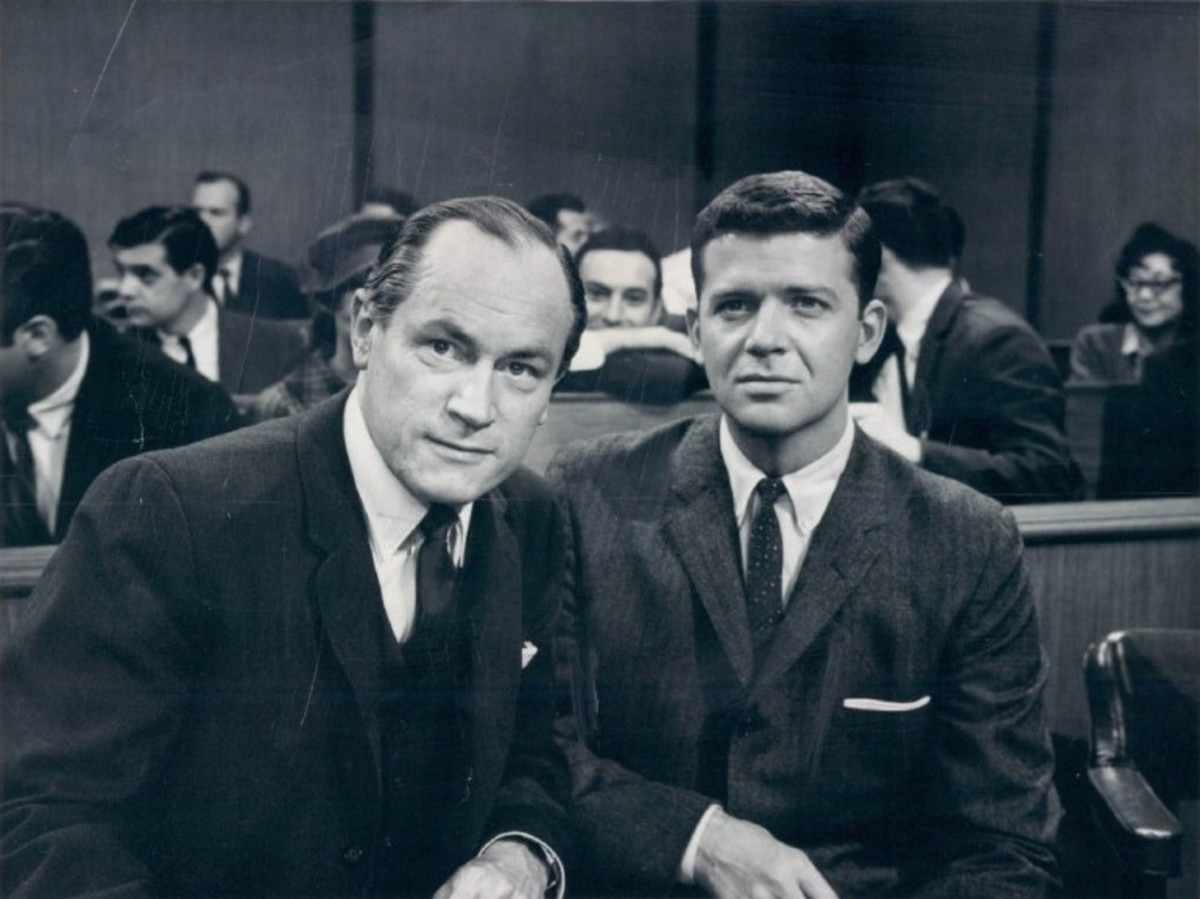Make My Day - The Truth About Castle Doctrine
The history of what has come to be known as Castle Doctrine is a very old concept that dates back to the ancient Romans. Cicero, the Roman philosopher, wrote:
quid enim sanctius, quid omni religione munitius, quam domus unusquisque civium?
Translation: What more sacred, what more strongly guarded by every holy feeling, than a man's own home? Wiki
This is echoed by William Blackstone in his Commentaries on the Laws of England written in the late 1700's:
And the law of England has so particular and tender a regard to the immunity of a man's house, that it stiles it his castle, and will never suffer it to be violated with immunity: agreeing herein with the sentiments of ancient Rome, as expressed in the works of Tully; quid enim sanctius, quid omni religione munitius, quam domus unusquisque civium? Wiki

Castle Doctrine is Common Law
While the basis of our American legal system is Common Law, not all states agree with the concept expressed by the Castle Doctrine. It follows as well that each state has a slightly different interpretation of Castle Doctrine, but the general concept as realized by our early ancestors is kept largely intact. The basic premise in a legal sense is that a state recognizing Castle Doctrine has no "Duty to Retreat." Duty to retreat loosely means that if an intruder makes his way into your home, you may not have a legal defense from protecting yourself with the use of deadly force unless you had attempted to retreat as far as possible from said intruder. In addition, if your attacker lives (or even if he does not) you are not held immune from any civil suit brought against you by him or the family.
Let's allow that sink in a minute...
It is therefore conceivable in these states that you could be prosecuted, sued, or both simply for defending yourself from an attack on your life or well-being that occurs within your own home or place of business. There being no immunity whatsoever, whatever decision made in these cases, were they to be brought against you and judging you at fault, would be binding and very costly. Did you ask for this to happen to you? Aren't you the victim? According to some states, you may be a liable participant, and you might have even committed a criminal act by defending yourself. We'll allow the courts decide your fate. Let's hope you have a good attorney. Let's hope you are not poor. Or perhaps we can just hope and pray for the best outcome.

Consider a quote from a 2006 New York Times article:
"Florida does not keep comprehensive records on the impact of its new law, but prosecutors and defense lawyers there agree that fewer people who claim self-defense are being charged or convicted."
This indicates that people were being tried and convicted in cases of self defense. It's astonishing that a person traumatized by a violent attack could find themselves on trial and wind up convicted.
From Wikipedia's notes on Castle Doctrine: In general, at least one or possibly more of a variety of conditions has to be met before a person can use Castle Doctrine as a legal defense:
- An intruder must be making (or have made) an attempt to unlawfully and/or forcibly enter an occupied home, business or car.
- The intruder must be acting illegally-e.g. the Castle Doctrine does not give the right to attack officers of the law acting in the course of their legal duties
- The occupant(s) of the home must reasonably believe that the intruder intends to inflict serious bodily harm or death upon an occupant of the home
- The occupant(s) of the home must reasonably believe that the intruder intends to commit some other felony, such as arson or burglary
- The occupant(s) of the home must not have provoked or instigated an intrusion, or provoked or instigated an intruder to threaten or use deadly force
- The occupant(s) of the home may be required to attempt to exit the house or otherwise retreat (this is the "Duty to retreat" proviso previously discussed, but fortunately most self-defense statutes using Castle Doctrine expressly state that the homeowner has no such duty)
In all cases, the occupant(s) of a domicile must be there legally, must not be fugitives, must not be using the Castle Doctrine to aid or abet another individual in being a fugitive from the law, and must not use lethal force upon an officer of the law while they are performing or attempting to perform their legal duties.
Many states using the stronger interpretations of Castle Doctrine have removed requirements 3 and 4 by stating that the forceful entry would automatically imply (3) threat of physical injury or death (a concept known as jeopardy) and (4) intent.
Strong Castle Laws Are Specific
Some states have strong Castle Laws which may specifically include other dwellings on your property, such as a garage or workshop, or may even include your occupied automobile. It is important that the language of the law has been specifically codified in support of these issues. Otherwise, a smart but deceitful attorney could "help" the judge or jury understand your act of defense in a way that is not in your favor. This means it is entirely possible for people in those states without some form of Castle Law could wind up being convicted for self defense in their own home if unlucky enough to encounter an anti-gun prosecutor and case details that are not purely evidential. Without the law to specify, self defense is not so cut and dried in these states, unfortunately. The interpretation of your duty to retreat, taken on a case-by-case basis, and supported only by precedents and case law, can be too subjective and may leave too much up to the jury member's views about self defense and weapons.
Stand Your Ground
Another component present in some of the states using a stronger interpretation of Castle Doctrine, is the notion of Stand Your Ground. This clause, also called no duty to retreat, specifies that use of deadly force in a place where a person has a legal right to be is justified without needing to attempt to get away first. Depending on the state, stand your ground can also be applied to public places in those states that have such a clause and allow some form of carrying the legal weapons used for self defense. This is notable since it represents a much stronger support for the rights of the individual. It is also important to recognize that the protections afforded individuals from a civil lawsuit are every bit as important and necessary as the defense from criminal prosecution, since either event can be traumatic and financially ruinous.
Organizations in support of gun control, the largest and most vocal of which is the Brady Campaign to Prevent Handgun Violence, like to refer to the Castle Laws as "Make my day" laws (conjuring up Clint Eastwood's famous line from the movies) or, worse, "shoot first laws". This sensationalistic phraseology implies that someone would be hoping for a criminal trespass or some sort of violent attack to happen, just so they get to be the bad boy and take some shots. This tactic and its overuse by certain, clearly biased media outlets to describe a simple legal concept seeks to paint responsible, law-abiding gun owners negatively.
Castle Doctrine is Common Sense
Castle Doctrine simply outlines something which all human beings, and even some animals know instinctively: That life and the sanctity of our domicile and the preservation of these things is of the highest order. Is the dead rape victim is morally superior to the gun-toting mom who refuses to be another casualty? If so then unfortunately we will continue to see crime rise. How will you stand up for your loved ones? Ownership of weapons is controversial, of course, and indeed I freely admit that some people probably shouldn't bother as they might just get themselves hurt. Owning a firearm and intending to have it for self defense means you have to commit to it and have thought things through...it's an awesome responsibility not to be taken lightly. When groups of people would try to decide whether others should have the legal protections for self defense, and then attempt to restrict access to the means, something has become flawed with their thinking. They have lost a part of their self that knows, or will come to know in the heat of the moment, that self defense and possession of the tools is a natural right. Or perhaps they sympathize with criminals more?








